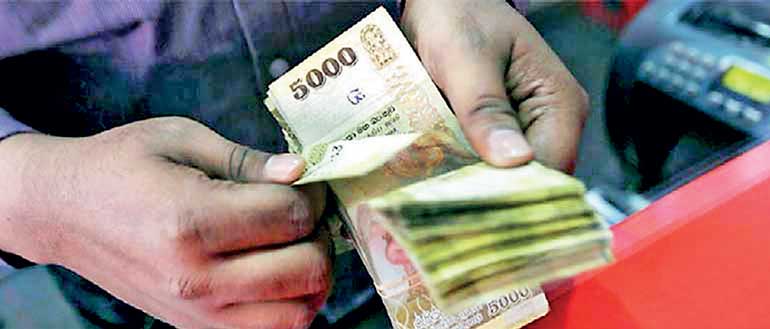Monday Feb 16, 2026
Monday Feb 16, 2026
Tuesday, 22 November 2022 00:00 - - {{hitsCtrl.values.hits}}

A simple and transparent tax system helps taxpayers better understand the system and reduces the costs of compliance
 Introduction
Introduction
Several implications relating to taxation have been frequently debated as a key concern in Sri Lanka’s development process over the decades. Despite achieving many objectives, Sri Lanka has been still struggling with a number of economic problems pertaining to the country’s tax system. However, this characteristic of taxation has been challenging as it does not deliver the potential tax revenue while maintaining a satisfactory level of tax compliance. In recent years, this issue in taxation has been focused with much debate among politicians, academic researchers, policymakers and practitioners. However, each successive government has been compelled to experience this challenge that is detrimental to the fiscal operation of the government, fairness of income distribution, efficiency, smooth economic stability and transparency.
The way forward
It’s said that there are a little over 300,000 taxpayers in Sri Lanka which is just 1.33% of the entire population. This is actually a disaster. It indicates the Government is now dealing only with the few individual taxpayers whilst imposing and increasing the tax rates to that very limited audience. Someone can argue that the problem is not relating to the tax rates whereas it is relating to the tax administration. The Government is supposed to relook at the composition of the Inland Revenue Department (IRD), whether they are capable of administering the tax files or rather they have enough resources to accommodate the requirements. Normally people are reluctant to pay tax. It’s an inherent limitation in any tax system. Especially with these adverse economic conditions in Sri Lanka, the power of purchasing has dramatically deteriorated. It also doesn’t provide a good sign or an indication even for the active taxpayers.
How should the Government raise the tax base? The answer for this will not be a popular decision to any Government. However as per the provisions of the Inland Revenue Act No. 24 of 2017, every person who has a taxable income shall file a ‘return of income’. Nevertheless, a resident individual who only has income from employment that is subject to PAYE will not be required to file a return for that year of assessment (section 94(1)(a)(ii).
Here the tax law is talking about filling a return of income. Not about registering a person as a taxpayer. The Government should focus on registering more people as the taxpayers whilst giving them Taxpayer Identification (TIN) numbers as the way people are given National Identity Card (NIC) numbers. That’s very important at this juncture where Sri Lanka is at a critical stage. Then only the Inland Revenue Department is able to keep a track record of the taxpayers and follow them up for getting the expected tax revenue.
At the same time, as we know a person who is employed either in the private or public sector, it is compulsory for the employer to get their employees registered for the Employee Provident Fund (EPF) and Employee Trust Fund (ETF). As such, the new regulations can be introduced to make it mandatory to register the employees in IRD by granting them Taxpayer Identification Numbers. In fact, it’s also proposed through the recent budget that “Sri Lanka will make income tax registration compulsory for everyone above the age 18 years.” That may be a decent proposal. Subsequently, the Inland Revenue Department being the sole tax administrator is able to widen the tax base and have continuous correspondences with the prospective taxpayers.
Then again, the Government should simultaneously rethink developing the infrastructure for the IRD by providing them with adequate resources to cater for this additional requirement. Of course, Information Technology (IT) plays a major role in this stage. For example; the QR code system has recently been introduced by the Government for delivering the fuel supply throughout the country in an efficient way. That was indeed successful and many people have been benefited. If so, why cannot the Government introduce the same mechanism to the country’s tax system?
If a vehicle is given a QR code then why a person cannot be given a QR code? Just think about it. Through a QR code, the IRD is able to check the tax history of the taxpayers, their assets or liability base, other income sources, tax payment patterns and default amounts, etc. This paves the way for curtailing the cost of printing the returns of income, tax payment slips and other corresponding letters by saving millions of rupees. That’s the next level where the Government is supposed to extend its strategies to widen the Government income through income tax.
Moreover, in July 2014, to revolutionise the tax culture in Sri Lanka, the Inland Revenue Department introduced a system called ‘RAMIS’ (Revenue Administration Management Information System) as their one-stop tax management platform by addressing the aforementioned facts up to a certain extent. But simultaneously IRD has been sending the printed returns of income and the printed payment slips to the taxpayers via post even though this system provides the same features to do so via online. That’s indeed a waste of Government money.
At the inception a proper marketing strategy should have been launched for promoting the newly introduced system among the general public as to how they should get the maximum benefits when they make the tax payments or submit the return of income through this system. Unfortunately, it has been eight years since the induction of RAMIS but there are many people who still don’t know how to get access or operate this system.
Therefore, IRD should introduce continuous awareness programs/training to the general public as to how this system works and the benefits of using it. In fact, what’s the meaning of having a system which was supposed to be utilised by a large audience but actually been utilised by a small audience? These problems should be immediately addressed by IRD to increase the tax revenue whilst letting the taxpayers avoid a maze of taxes, forms and filing requirements. A simple and transparent tax system helps taxpayers better understand the system and reduces the costs of compliance while letting them know who is being taxed, how much they are paying, what is being done with the money and who benefits from tax exemptions, deductions, and tax credits, etc.
Motivating taxpayers
Since the fact that people are reluctant to pay tax, the Government should introduce strategies, schemes or motivational campaigns and certain monetary and non-monetary encouragements to the taxpayers. It’s obvious that people are making rational decisions when spending their own money such as doing a cost-benefit analysis. So that a person who is liable to pay tax may be thinking of the benefits that are being received in lieu of the tax payment. That’s obvious. The question is; has the Government properly introduced such a mechanism or a system for it?
In April 2016, IRD introduced some annual privilege cards for the taxpayers based on the income tax paid in the immediately preceding year of assessment. As per the official website of IRD, ‘the individuals who paid income tax more than Rs. 500,000 and submitted the return on or before the due date are eligible for this scheme’. And it has mentioned certain benefits for having these privilege cards. But the problem here is; this section has not been updated for six years. It was last updated in 2016.
Another thing is; these mentioned benefits are mainly given through the banks. That’s not sufficient at all. The IRD should introduce more benefits for the taxpayers by expanding its relationships with other stakeholders such as food city chains, hospitals, educational institutions, etc. With these comprehensive strategies, IRD can attract more non-tax payers to the tax system and increase the tax base of the country.
(The writer is a Senior Chartered Accountant, Fellow Member of Certified Management Accountants Sri Lanka, Chartered Professional Managers Sri Lanka, AAT Sri Lanka, Institute of Public Accountants Australia, Institute of Financial Accountants (UK), Associate Member of Chartered Institute of Marketing (UK), a Qualified Risk Management Specialist, an Authorised Tax Representative and holds an MBA and a BSc. Business Administration (Special) Hons. degree from the University of Sri Jayewardenepura.)